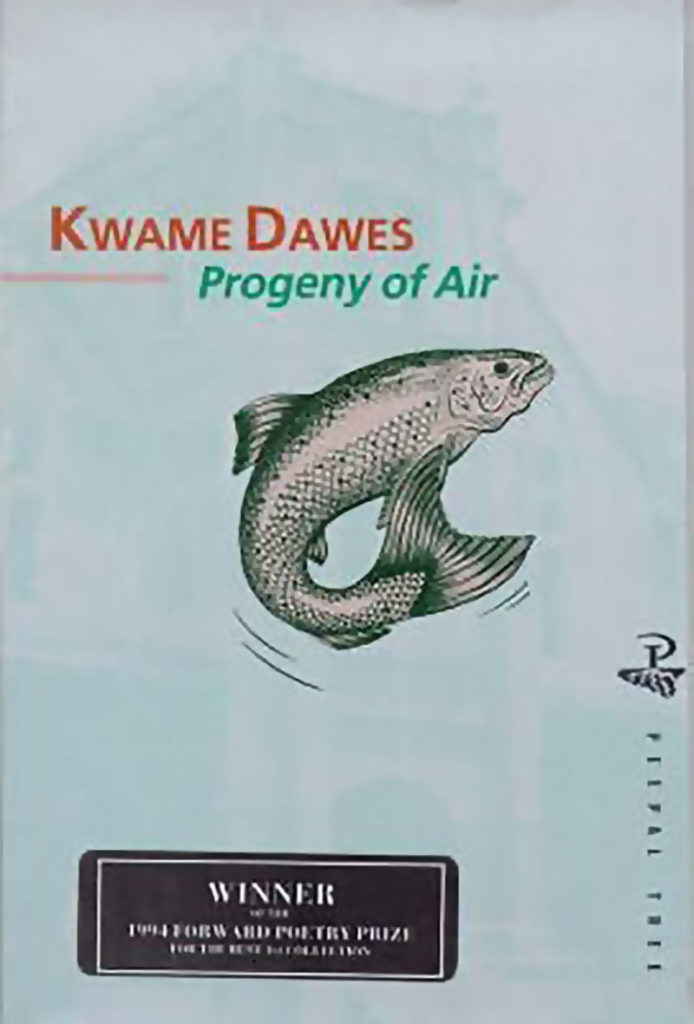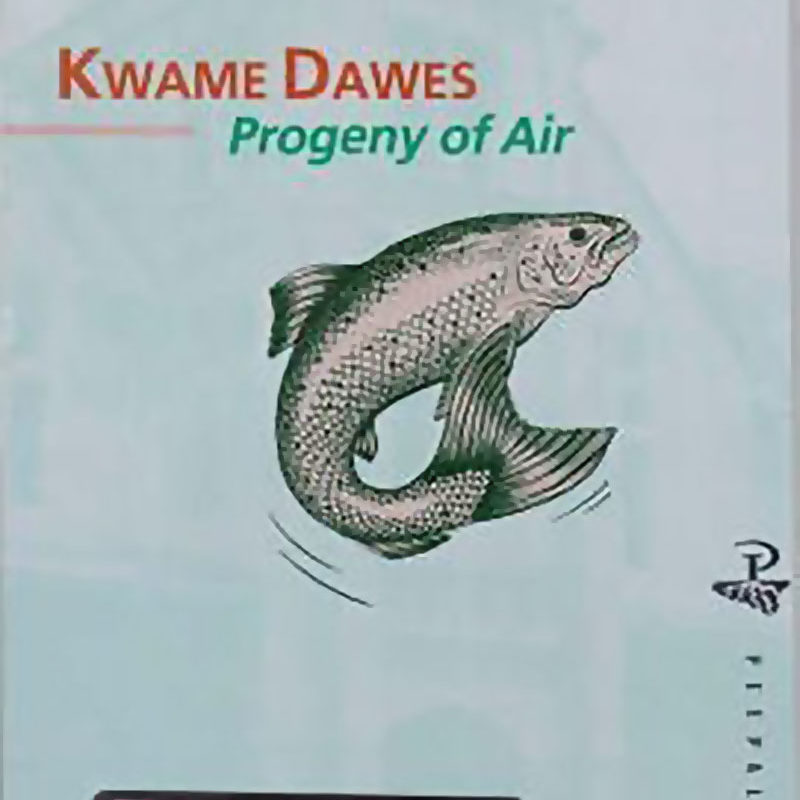Close reading of Kwame Dawes’s ‘The Third Former’s Burden’ from Progeny of Air
William Ghosh
We were in third form when we learnt the breadth
of the generation gap; and conferencing in concerned tones,
we lamented the waywardness of today’s youth, the impactof television […]
Here was a feckless and weak generation;
Kwame Dawes, ‘The Third Former’s Burden’ from Progeny of Air (1994)
a sad foundation upon which the school’s future was to be erected.
These were, as you would imagine, sad days for us.

Progeny of Air, Kwame Dawes’s first book of poems, won the Forward Prize for best first collection in 1994, when its author was thirty-two. Three of the four sections present scenes from the life of the poet-persona: from childhood (‘Singing Stories’), from adolescence (‘Hall of Fame’), and from young adulthood (‘Grace’). The other section, ‘Cabinet of Beggars’ describes the power-struggles in a Kingston gang.
Kwame is the son of Neville Dawes, the eminent Jamaican novelist and academic. He was born in Ghana, where his father was lecturing. But he was brought up in Jamaica and educated at Jamaica College: an august boys’ school – in the pattern of English public schools – whose alumni included the social theorist Stuart Hall and the Jamaican Prime Minister Michael Manley. Manley, in fact, was prime minister of Jamaica from 1972 to 1980, so for almost all of Dawes’s time at secondary school.
Many of the poems in this book describe the institutions of male education in the Jamaica of the 1970s. The characters, legends, and topography of Jamaica College, namechecked in ‘The Old Zoology Labs (Jamaica College)’, are described in sometimes-loving, sometimes-bitter detail. Military formation, in the Army Cadets is also described (in ‘Bivouacked: Moneague 1977’ and ‘Head’). And there are uneasy parallels to be drawn between these two, middle-class institutions, and the gangland hierarchies of the ‘Cabinet of Beggars’. Some of the sexual politics and male bravado seem to be common to all three spaces.
‘The Third Former’s Burden’ is the concluding poem in the sequence of poems about childhood. The third form, in Jamaican schools, is for thirteen- or fourteen-year-olds: the equivalent of Year Nine in the British system and – similarly – the third year of secondary school. The third formers in this poem feel very mature and very superior to the new first form intake, and take it upon themselves to educate them. ‘Maybe a few blows,’ they think, ‘a few real rough moments of discipline / would straighten them out for good and salvage the school’s // waning dignity’.
The humour of the poem comes from the pretentious registers the students adopt. Sometimes they sound like Victorian English moralists: ‘Here was a feckless and weak generation’. At others, they adopt the faux sincerity of the politician: ‘These were, as you would imagine, sad days for us’. They sound most like thirteen-year-old boys when the prospect of a ‘a few blows’ is suggested (imagine the glee with which you might trill the ‘r’s in the line: ‘a few real rough moments of discipline’). A pulse of adolescent energy comes from the frequent internal rhymes and echoes (‘gap’, ‘impact’ or ‘generation’, ‘foundation’, ‘imagine’). The feverish energy of teenage boys will often have the potential to bubble over into violence. For these boys, their schooling, and what they hear from their political leaders, both tacitly encourages this violence, and gives them a language for justifying it.
The title of the poem alludes to Rudyard Kipling’s 1899 poem ‘The White Man’s Burden’: an imperialist poem exhorting (white) readers to ‘take up the White Man’s burden’ and help ‘civilize’ the ‘new-caught, sullen peoples’ abroad. Jamaica is a former British colony, and Kipling’s poems would have been standard texts in Jamaican colonial schools. One classic Jamaican novel, Myal by Erna Brodber (1988), begins with the mixed-race protagonist, Ella O’Grady, giving a recitation of ‘The White Man’s Burden’ to a visiting Anglican parson.
One point Dawes is making is that, though the British may have gone (Jamaica became independent in 1962, the year of the poet’s birth), the institutions they have left behind for education and socialisation continue to instil ideas about hierarchy and masculinity, and to valorise violence and corporal punishment, in ways that can be traced to the colonial period. The effects of this formation can be seen in the highest levels of Jamaican politics, Dawes suggests: ‘It should come as no wonder to the casual observer | why this school has produced so many great leaders | for this little nation: They taught us well, very well.’ His tone here is dead-pan, detached and ambiguous. Is it humorous, sardonic, exasperated, or ominous?
Cite this: Ghosh, William. “Close reading of Kwame Dawes’s ‘The Third Former’s Burden’ from Progeny of Air.” Postcolonial Writers Make Worlds, 2019, [scf-post-permalink]. Accessed 30 January 2022.
